Book Club Discussion – Elon Musk by Ashlee Vance
We liked it more than we thought we would – quite entertaining, and with some great stories.
Key Points:
- Focus
- Hairballs
- Risk
- Big Ideas
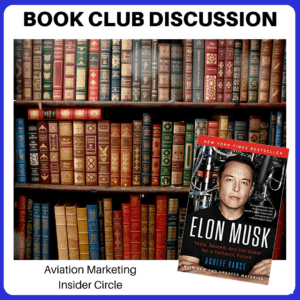
Key Point #1 – Focus
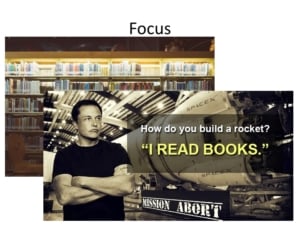 One factor that seems less and less common these days – being able to focus on one thing without succumbing to the constant distractions of technology.
One factor that seems less and less common these days – being able to focus on one thing without succumbing to the constant distractions of technology.Key Point #2 – Hairballs
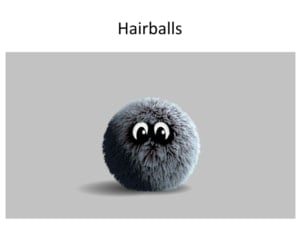 Computer programmers use the term “hairballs” to describe bits of code that do accomplish a specific task, but that don’t interact well with the rest of the program, and that are hard for other programmers to work with because they don’t have “clean” inputs, outputs and documentation.
Computer programmers use the term “hairballs” to describe bits of code that do accomplish a specific task, but that don’t interact well with the rest of the program, and that are hard for other programmers to work with because they don’t have “clean” inputs, outputs and documentation.
High-performing people, especially founders of companies, often hit a point where they HAVE to delegate in order to grow, but they’ve created “hairball” systems with their website, their billing systems, and their marketing that are just easier to manage themselves rather than get someone to help them.
Growing past the stage of “hairballs” is critical to get through that dangerous phase of having to do everything yourself and trusting that someone else can do the job as well, even if it means untangling some of the systems you’ve created.
The story of Musk going through this stage with Zip2, his first company, involved late nights of Musk rewriting code because the work of his employees didn’t satisfy him, literal knock-down drag out fights with employees and partners (also rash young men and good friends) was refreshing to me, since I’m currently dealing with issues of delegating to an assistant when it’s “just easier” to do it myself!
Key Point #3 – Risk
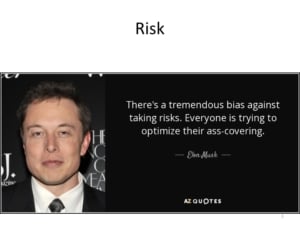 Musk has a legendary tolerance for risk.
Musk has a legendary tolerance for risk.
A few of the interviews with Musk’s associates highlight the anxiety of some of his colleagues over some of the “high risk” decisions he makes.
Musk seems to have a pretty high tolerance for personal discomfort and anxiety – he grew up fairly rough, bought a ticket for Canada based on a hope in the couches and hospitality of distant relatives. He slept on a beanbag chair in his first office.
I think this disdain for personal comfort really helped him make some of the more “risky” decisions- He’s been broke and has no fear of it. He doesn’t feel the need to coddle investors or other authority figures.
This may be out of place in a marketplace where investors demand quarterly earnings reports (and presumably, quarterly improvement) but it’s essential to any mature business to make decisions that may be temporary setbacks.
Key Point #4 – Big Ideas
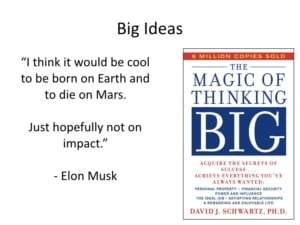 People wonder how Musk can successfully run three companies – Tesla Automotive, Solar City, and SpaceX.
People wonder how Musk can successfully run three companies – Tesla Automotive, Solar City, and SpaceX.Conclusion
 Definitely worth a read for the four reasons we discussed. I’m glad we read it, still not a huge fan of biographies.
Definitely worth a read for the four reasons we discussed. I’m glad we read it, still not a huge fan of biographies.Podcast: Play in new window | Download
Subscribe: Spotify | Amazon Music | RSS
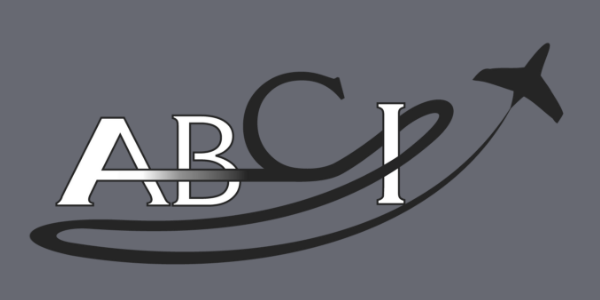
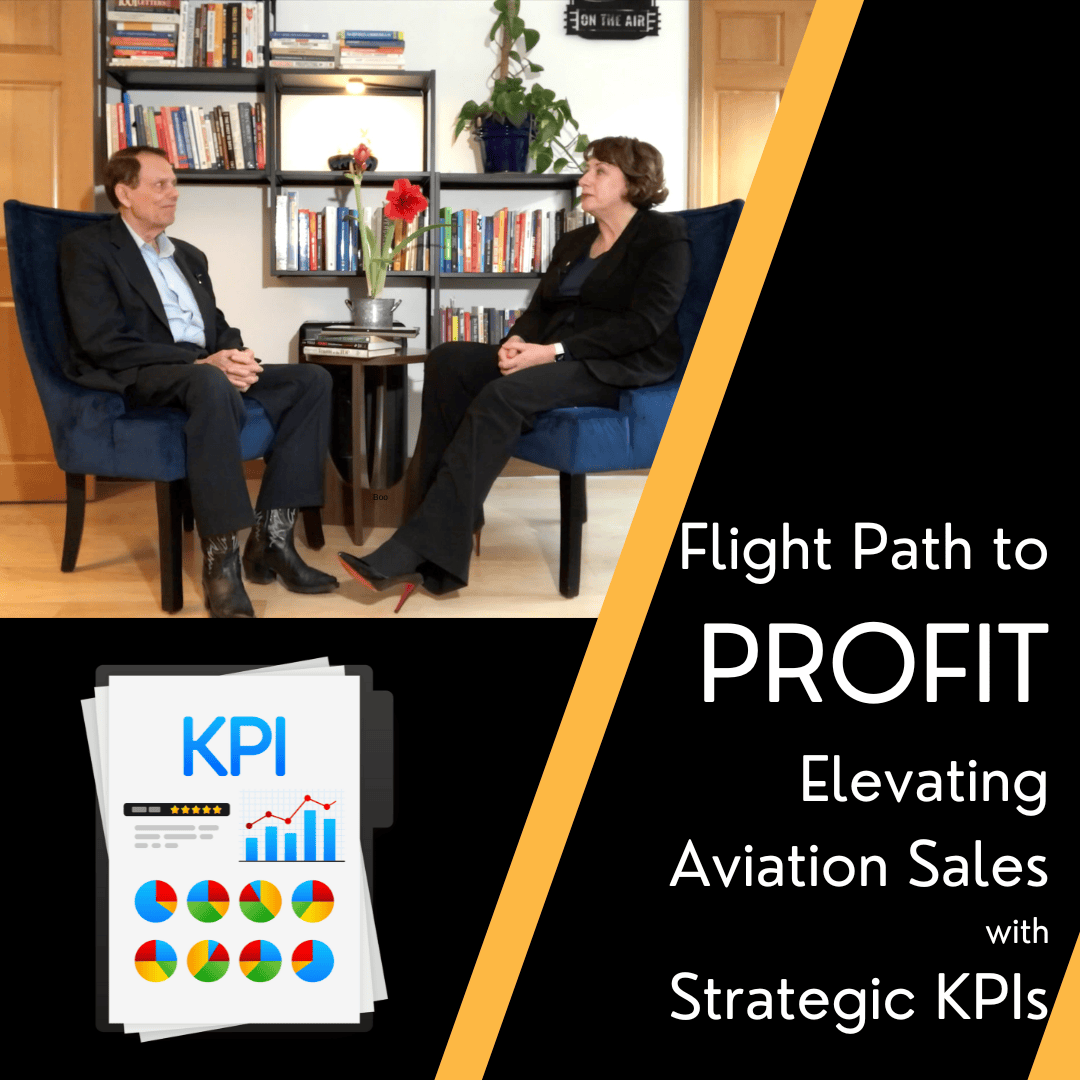

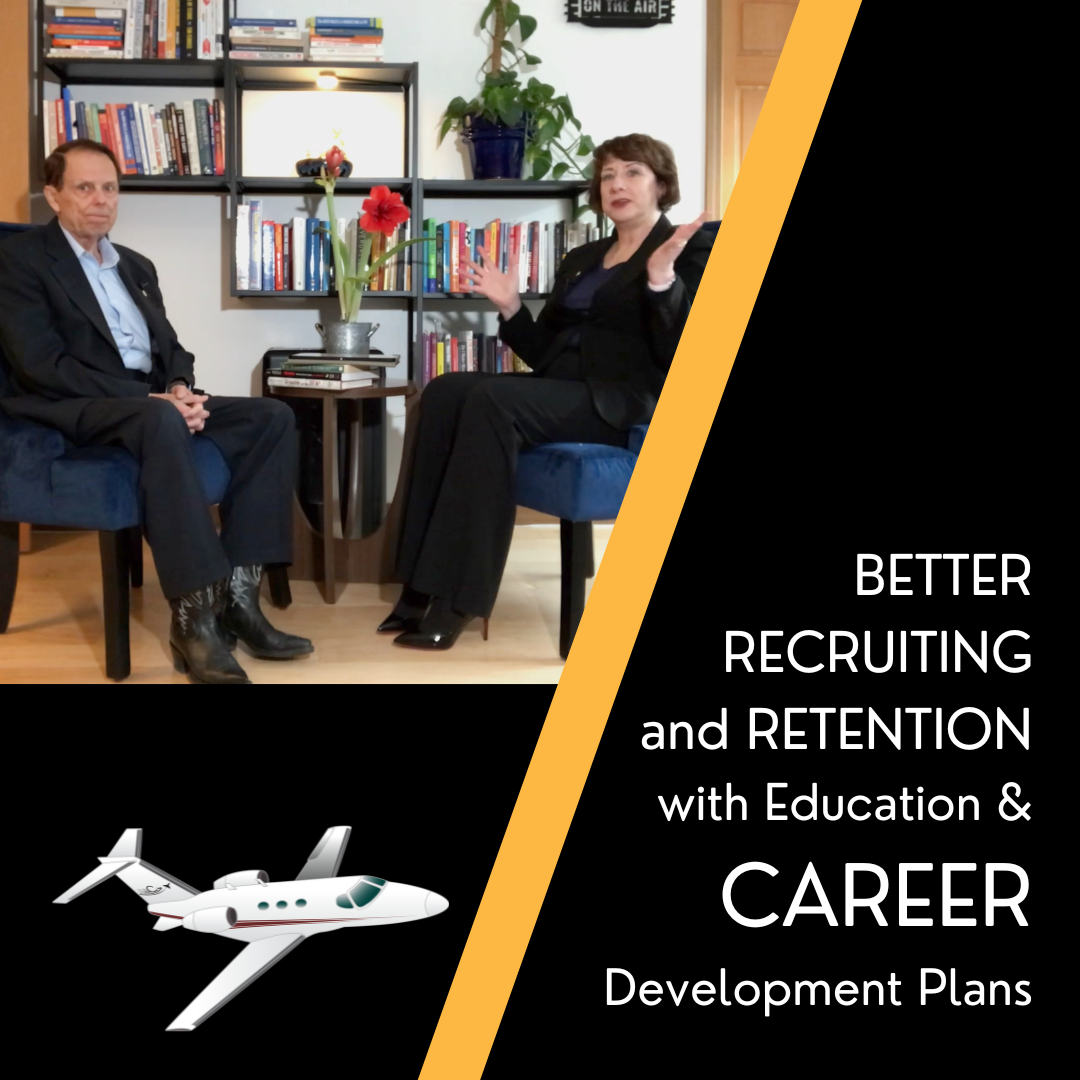
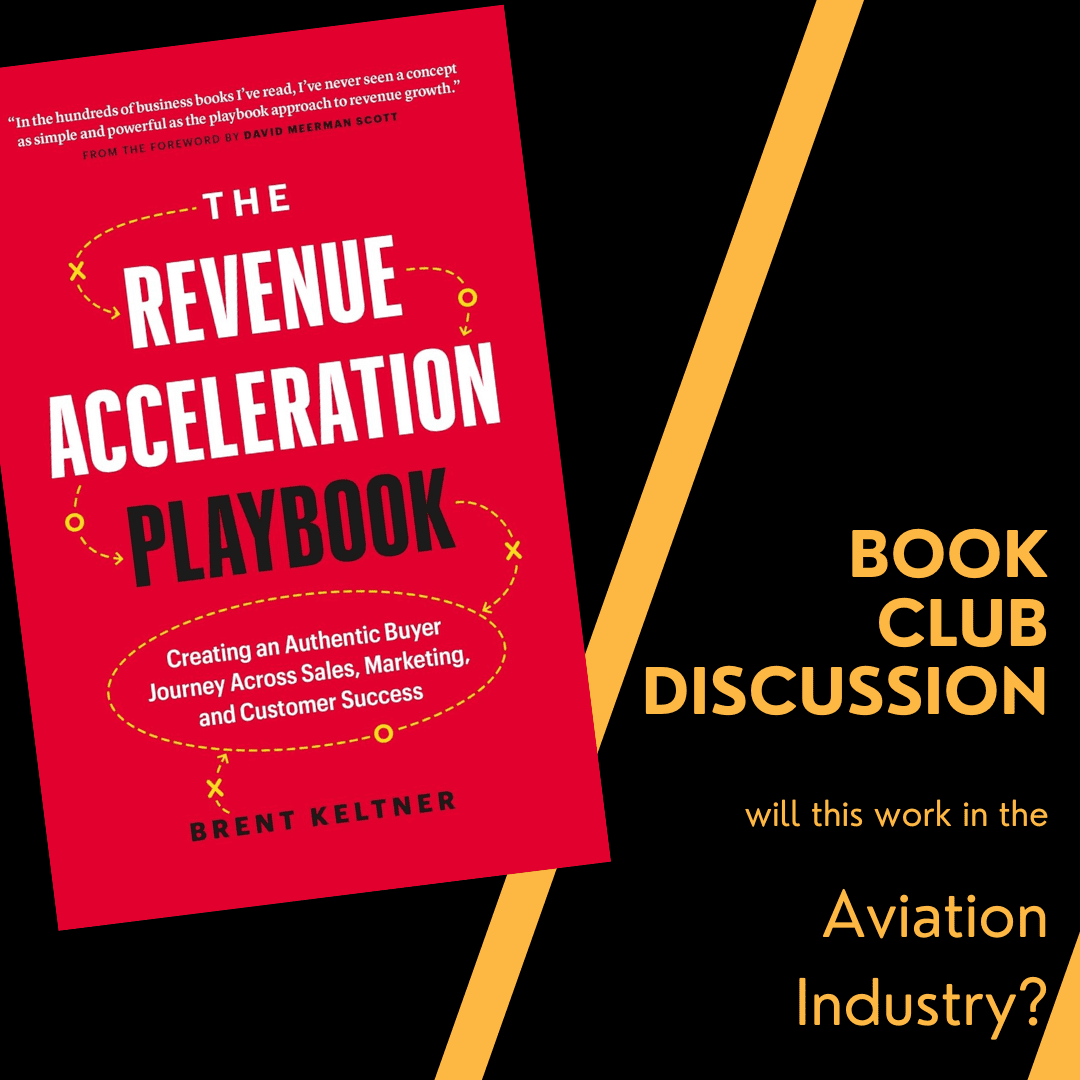
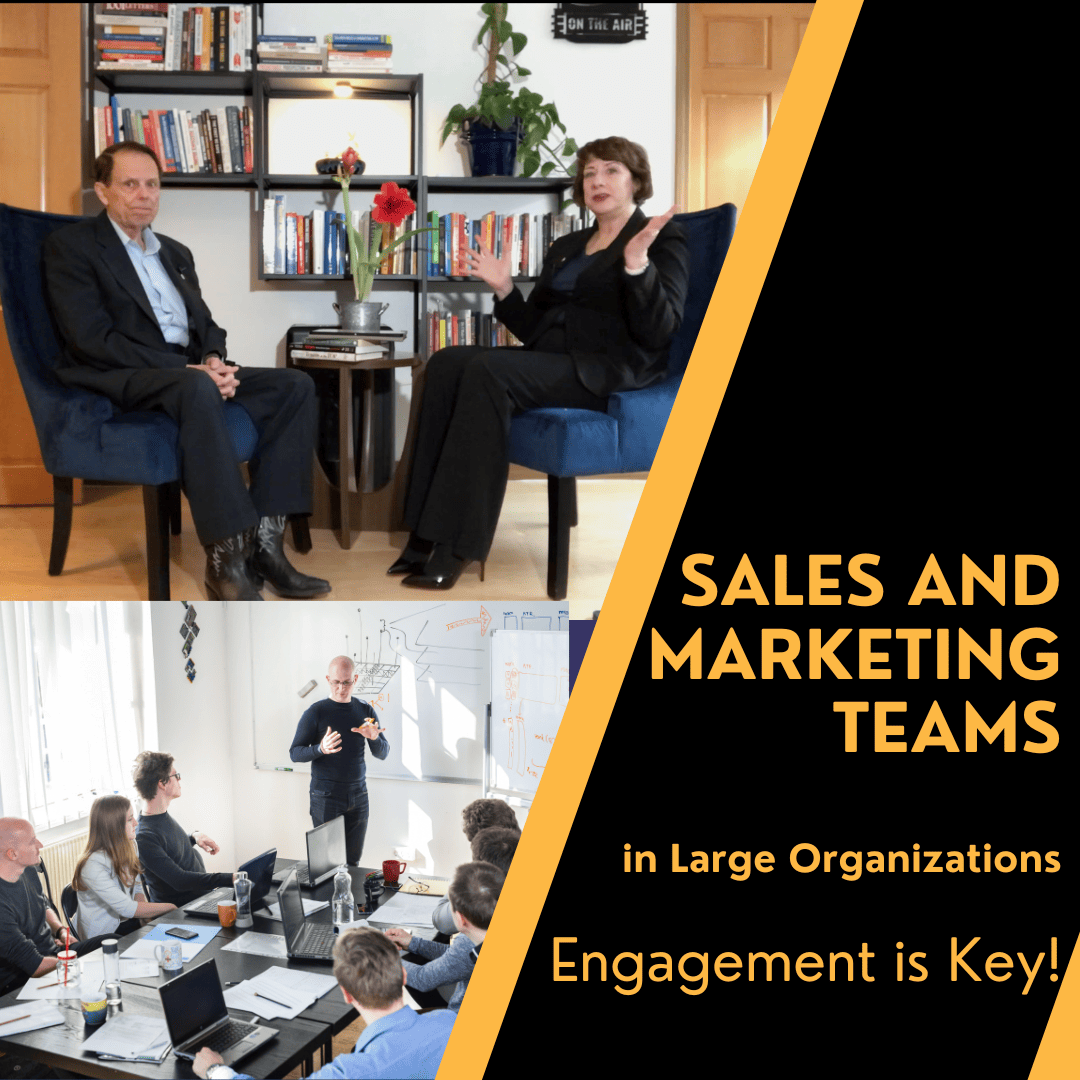
Really great explanation on Key Points: Focus, Hairballs, Risk, Big Ideas
[…] Book Club Discussion – Elon Musk by Ashlee Vance […]
Falcon 9 is a reusable, two-stage rocket designed and manufactured by SpaceX for the reliable and safe
transport of people and payloads into Earth orbit and beyond. Falcon 9 is the world’s first orbital class reusable rocket.
Reusability allows SpaceX to refly the most expensive parts of the rocket,
which in turn drives down the cost of space access.